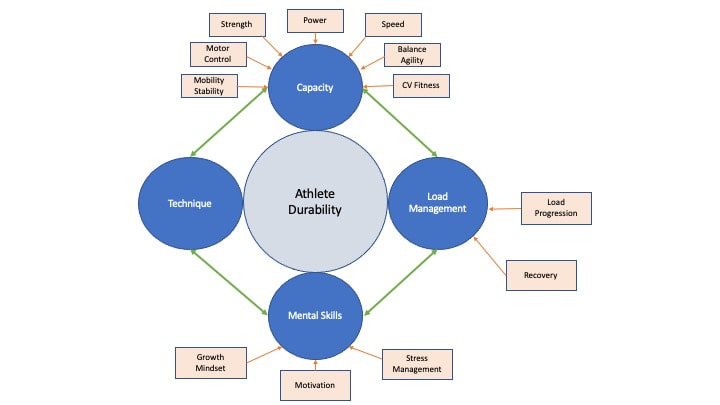|
Swimming is considered a relatively safe sport compared to impact sports such as football, but still has its share of injury risks due to its repetitive nature. For example, the prevalence of shoulder injuries among competitive swimmers has been reported to be as high as 91%! How does Physical Therapy help swimmers stay healthy and keep training for peak performance? Minimize Excessive Compensations Our bodies are amazingly adaptable so, if you have limited mobility, strength or motor control in one area, then other parts of your body will learn to move in a new way to get the job done. This is a great system that allows us to keep moving but sometimes the compensations become excessive, and when combined with a rapidly increased training load and/or poor recovery, can lead to overuse injuries. A Movement Assessment by a Physical Therapist helps to identify areas for improvement with your mobility, coordination and strength. This is great information for swimmers of all ages! Young swimmers are constantly growing and growth spurts mean that a swimmer is suddenly using longer arms and legs, and basically has to retrain their neuromuscular control of this “new body”. Older swimmers face similar issues as they might be learning to move with decreased elasticity of tendons, decreased joint mobility, stiff spine or decreased lean muscle mass. Anyone who sits and uses technology for any period of time can start to get tight chest muscles, hamstrings, hip flexors or weak back muscles, glutes or shoulders. Earning the Right to Load So, you want to get STRONG, and you want to swim FAST. Guess what, the best way to do that is lift heavy things and to, you guessed it, swim fast. But, sometimes pain, weakness or immobility cause us to use compensations to do these things. For example, what if the muscles around your shoulder are tight or weak, or your shoulder joint is stiff, and you can’t reach completely overhead? What is going to happen when you try to do an overhead press, waiter’s carry exercise or power snatch? You are going to have to overly arch your back and that means that your trunk is not able to stabilize very well, making it easier to overload your back. What does this look like in the water? When your hand enters the water with freestyle, that arch in your back means that your hips are being pushed toward the bottom of the pool. Taking the time to work on these baseline abilities during your warm up or recovery routine (or during work breaks) help improve your dryland and swimming technique which, in turn, allows you to lift heavier and swim faster. Healthy swimmers keep training and consistent training makes you more durable. Only a small piece of the injury-prevention puzzle Remember that mobility, stability and motor control are merely baseline functional abilities upon which you can build your strength, power, speed, cardiovascular endurance. These are not the only components affecting the durability and resiliency of a swimmer. Looking at the graphic below, you can see there are a number of factors affecting your ability to stay in the game. This may seem daunting but know that everything is interrelated so small changes can have exponential effects. Want to schedule your swim-specific Movement Assessment? Book by 1/31/2023 for a 20% discount
0 Comments
Leave a Reply. |
AuthorKendal Jacobson, PT Archives
January 2023
Categories |
|
P 512-736-6742
F 877-736-5233 10601 Pecan Park Blvd, Suite #302 Austin, Texas, 78750
|
|


 RSS Feed
RSS Feed